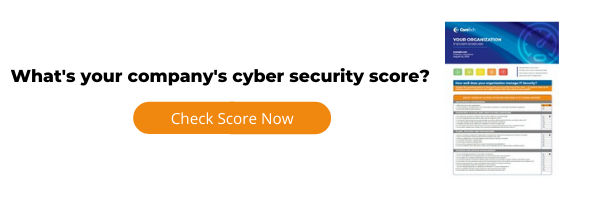 Hackers spend their days finding ways into your devices and accounts in order to obtain credit cards, passwords, social security numbers, and basically everything you wouldn’t want to share with a complete stranger.
Hackers spend their days finding ways into your devices and accounts in order to obtain credit cards, passwords, social security numbers, and basically everything you wouldn’t want to share with a complete stranger.
Also, you have unscrupulous hackers that are constantly attempting to trick you so that they can lock up your data and hold it hostage for a ransom. Having a plan in place BEFORE your information is stolen is the best way to outsmart a hacker.
Read on to learn what you should be doing to keep your devices and accounts safe.
Beware of phishing scams, phony websites and malicious ads
By now, you’ve heard of these scams, but you’re probably not being as cautious as you should. Hackers design the emails, websites, and ads to look official enough to deceive people into believing they’re legitimate.
Always hover over a link to ensure you recognize the destination. It’s a good rule of thumb to access the company webpage from your browser, not from links in an email.
Also, give the business a call if they’re asking for personal information through email.
Be very wary of a request to enter personal information online, particularly if you aren’t familiar with the company or their website. Don’t respond, click on images or links or open any attachments from an unknown email address or companies.
If you do receive an email with an attachment or request for information from a person or company that you do know but were not expecting, call them to verify if they actually sent the email.
Use strong passwords and two-step authentication
The best way to protect your personal accounts, client information, and business computers from a hacker is by creating strong passwords. Hackers will have a harder time unlocking an account with more letters, numbers, and symbols. Take a look at our blog post for tips on password security here.
Two-step authentication prevents hackers from accessing the account without a verification code. Many social media and banking websites offer two-step authentication for users. Once you type your password, a one-time verification code is sent to your mobile phone for you to then type into the site and continue to your account.
Use secure wireless connections
Everyone uses public Wi-Fi at some point, whether they’re at a coffee shop, airport, park - you name it- but not everyone knows that all the people sharing that same public Wi-Fi with you can access what you are doing.
It may seem convenient to connect to the Wi-Fi and check your email, but someone can be watching exactly what you’re doing and tracking your passwords and personal information. Never use public Wi-Fi for purchasing, banking, or shopping.
Protect data against loss or theft
We store a lot of personal information on our phones including passwords, pictures, and online accounts that we wouldn’t want falling into the wrong hands. Whether your phone is stolen or lost, you want to have a way to protect that information. Apps such as Lookout or LoJack allow you to track your device and lock or wipe its data if it gets stolen.
Update apps and software
When a new update for an application or software comes out, you should install it right away. A majority of these updates contain a security update that patches the holes found by hackers. If you don’t update these applications and software, then those holes are still open for hackers to find and get into your accounts and devices. The update notifications are annoying, but it only takes a few minutes to download and will keep your device and information safe.
Let us help you with your technology needs
Want to learn more about what you can do to protect yourself? At CoreTech, we’re here to help you strategize and deliver on your technology plans. We will help you stay on top of emerging security technologies to keep your business safe.
Do you have any questions or concerns about your organizations IT security needs? Contact CoreTech today.

